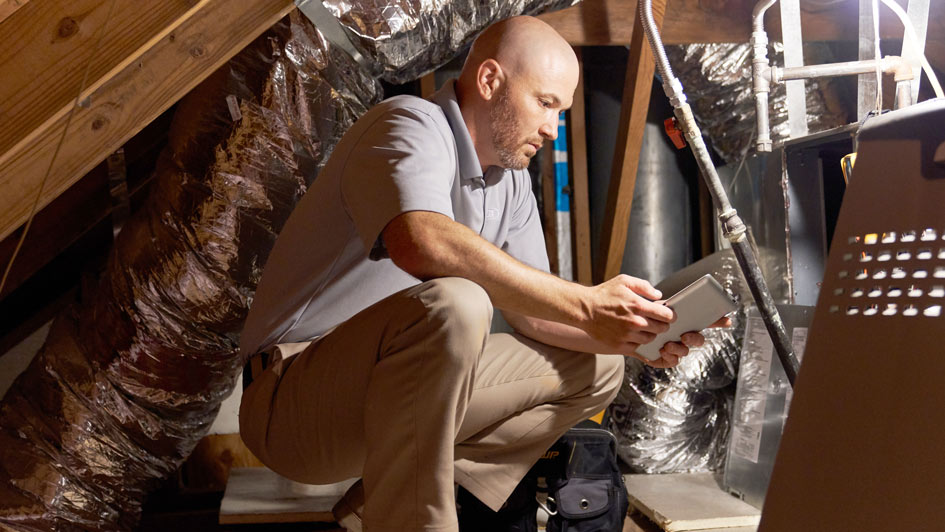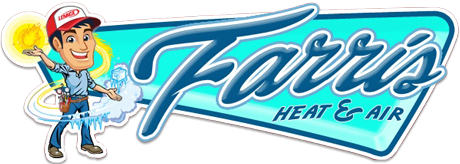
Did you know that more than one-half of your home’s energy costs are needed for your heating and cooling? This is why it’s essential to have an energy-efficient HVAC system.
Furnace efficiency standards were last modified to an Annual Fuel Utilization Efficiency (AFUE) rating of 80% in 2015. This rating system measures how effective your furnace is at natural gas into heat. An AFUE rating of 80% means your furnace will waste about 20% of the fuel it uses while generating heat.
In 2022, the U.S. government proposed new energy-efficiency standards for residential gas furnaces that would greatly lower emissions, save customers money and encourage sustainability.
The updated standards are projected to:
- Save Americans $1.9 billion annually.
- Cut carbon emissions by 373 million metric tons and methane emissions by 5.1 million tons over the next 25 - 30 years, the equivalent of what 61 million homes emit each year.
Starting in 2029, the updated rule would demand all new gas furnaces to feature AFUE ratings of 95%. This means furnaces would turn nearly 100% of the gas into usable heat.
With these facts in mind, you may be asking yourself "what happens to my existing furnace"? Currently, very little, as the proposed rule won't go into effect until 2029 at the earliest and does not affect furnaces that are already in use.
But if your furnace is nearing the end of its life and a replacement is needed in soon, highly energy-efficient furnaces are ready and available. Learn how these furnaces can help you save on energy bills now.
Guide to Condensing Furnaces
How Condensing Furnaces Work
A condensing furnace is a kind of heating system that uses a secondary heat exchanger to capture wasted heat from the furnace's exhaust gases. This decreases the amount of energy wasted, improves energy efficiency and lowers greenhouse gas emissions. It also involves less natural gas to generate the same rate of heat compared to other types of furnaces.
How Condensing Furnaces Differ from Non-Condensing Furnaces
The primary difference between a condensing furnace and a non-condensing furnace is condensing models use a secondary heat exchanger to collect any wasted heat from its exhaust gases, while the latter does not.
Equipment Lifespan
The life span of a condensing furnace depends on the brand, model and other factors. Generally speaking, a condensing furnace should last between 10-20 years with appropriate maintenance and regular service. If you don’t schedule routine maintenance, it may not last as long.
Why Condensing Furnaces Cost More
Generally, condensing furnaces enhanced precision is significantly more efficient than traditional furnaces, as it only uses the minimum amount of energy necessary to heat your home, which subsequently saves money on your utility bills.
Most variable-speed furnaces are condensing furnaces, although a few are available in non-condensing models with lower AFUE ratings. In order for a furnace to be classified as a condensing furnace, it must offer an AFUE rating of 90% or higher.
Do Variable-Speed Furnaces Run All the Time?
A variable-speed furnace doesn’t need to stay on all the time. Alternatively, it runs at different speeds based on the temperature in your Bartlesville home as well as the amount of energy it uses to reach that temperature.
When sufficient energy is necessary to maintain your set temperature level, the furnace will increase to a higher speed to manage the higher demand. Precise fan speeds offer more efficient heating in your home while also providing quieter operation.
Guide to Two-Stage Furnaces
Two-Stage Furnaces: What They Are and How They Work
As the name suggests, a furnace with two levels of operating (high or low) is called a two-stage furnace. When set to the low stage, the furnace operates at a reduced capacity in order to maintain the desired temperature for your home more efficiently. During the high stage, the furnace will instead run at maximum capacity to meet demands for greater heat. With a two-stage furnace, you can maintain improved energy efficiency and stable temperatures throughout your home.
While two-stage furnaces are very efficient, not all all models are condensing furnaces.
Does a Two-Stage Furnace Run All the Time?
A two-stage furnace won’t run all the time. In the low stage of operation, the furnace operates at limited capacity in order to maintain a planned temperature more efficiently within your home. When additional energy is needed to reach the set temperature, the furnace will switch to its high stage and operates at full capacity. For this reason, two-stage furnaces are proven to help reduce energy costs without operating continuously.
Differences Between Two-Stage and Variable-Speed Furnaces
Two-stage furnaces have two stages of operation, low and high. During the low stage, the furnace runs at reduced capacity in order to sustain a desired temperature within your home. When more warmth or cooling is necessary, the furnace will shift to its high stage and operate at maximum capacity.
Variable-speed furnaces, meanwhile, can operate at multiple speeds in order to uphold a desired temperature more consistently at home. With more options for temperature settings, you also have more flexibility for heating you home and can enjoy greater savings on energy bills.
Differences Between One- and Two-Stage Furnaces
One-stage furnaces have a single stage motor and operate either at full capacity or not at all. As a result, the furnace runs constantly in order to maintain a desired comfort level at home.
Conversely, two-stage furnaces have two stages of operation, low and high. While in the low stage, the furnace runs at reduced capacity in order to maintain the desired temperature more efficiently. When more warmth or cooling is desired, the furnace will switch to its high stage and operate at maximum capacity.
Schedule Your Furnace Installation with Farris Heating & Air Today
Modern furnace technology can be confusing. That’s why Farris Heating & Air professionals are here to help with a no-obligation, no-pressure estimate for furnace installation. We’ll assess your home, your heating needs and your budget before helping you find the best solution. Contact us at 918-333-0376 to get started today!
